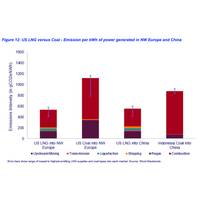Gazprom: No Need for Europe Price War
A top official at Russian gas giant Gazprom played down the prospect of deliberate price cuts in the face of an expected influx of alternative fuels on Thursday.
Gazprom deputy head Alexander Medvedev said there was no need for a price war over European gas markets, although if liquefied natural gas product costs and prices in the United States fell, Gazprom would have to respond by cutting costs.
"Part of our volumes are marketed with (an) oil-peg. Within those contracts, a decades-long system of price revision mechanism exists," Medvedev told an investor meeting in London.
"The other part of the volumes either directly or indirectly is related to the pricing at the gas hubs... In relation to such prices, we had not...and will not apply any discounts. So, I think there is no need for us to launch a price war".
Natural gas from Russia accounts for a third of total gas consumption in the European Union, Gazprom's key market.
Analysts expect rivalry for the market to intensify once the supplies of rival fuels, such as LNG from the United States and Australia begin to arrive in large volumes.
Europe also has strategic importance for the United States, where companies that have already invested $60 billion in four giant export schemes see a lifeline in the continent's deep markets and dozens of under-used import terminals.
Low oil prices, to which Gazprom's gas prices are pegged, have allowed it to strengthen its position in Europe as Germany, Russia's top gas buyer, bought 45.3 billion cubic metres (bcm) of Russian gas last year, an all-time high.
UK consultancy Energy Aspects has said the incremental (year-on-year change) volumes of LNG likely to be available to Europe will be around 23 million tonnes in 2016 and 34 million tonnes in 2017.
"For the next two years, we think Gazprom will default to business as usual and this will mean a drop in its exports by 10 bcm/y by 2017, as contract customers revert to minimum take-or-pay levels. At this point, we believe Gazprom will have to rethink its overall gas marketing strategy," it said.
By Vladimir Soldatkin











